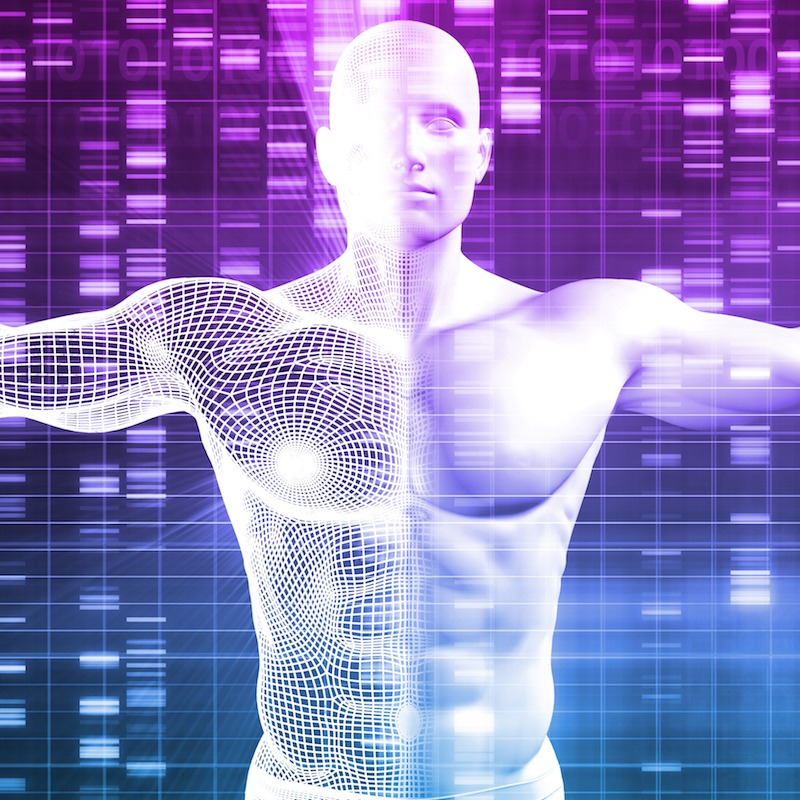Genes and Nutrition
Each of us is metabolically unique. Gene variations known as SNPs (single nucleotide polymorphisms) often are a factor in an individual’s ability to metabolize or use nutrients efficiently. Each of our specific nutrient needs is affected by which specific combination of SNPs we have, but with thousands known to impact nutrition metabolism, how do we know what those needs are?
NRI researchers are working to create a “catalog” of SNPs that alter our nutritional needs by understanding how genetic and other complex biological information can be used to better estimate individual nutrition requirements and intolerances. Our scientists use bioinformatics to extract such information from population and intervention studies, develop rules for predicting individual needs, and bring precision nutrition to health care providers and consumers with digital tools.
Publications
Genes and Nutrition Publications
2020
Genetic variants affecting bone mineral density and bone mineral content at multiple skeletal sites in Hispanic children. Voruganti VS
Precision (Personalized) Nutrition: Understanding Metabolic Heterogeneity. Zeisel S
2019
DNA methylation in mice is influenced by genetics as well as sex and life experience. French J
Cytosolic 10-formyltetrahydrofolate dehydrogenase regulates glycine metabolism in mouse liver. Krupenko S
Deleterious mutations in ALDH1L2 suggest a novel cause for neuro-ichthyotic syndrome. Krupenko S
Fine mapping and identification of serum urate loci in American Indians: The Strong Heart Family Study. Voruganti VS
Heterogeneity in Metabolic Responses to Dietary Fructose. Voruganti VS
Genetic analysis of hsCRP in American Indians: The Strong Heart Family Study. Voruganti VS
A trans-ancestral meta-analysis of genome-wide association studies reveals loci associated with childhood obesity. Voruganti VS
Healthy dietary patterns and risk and survival of breast cancer: a meta-analysis of cohort studies. Voruganti VS
Omega-3 Fatty Acids and Genome-Wide Interaction Analyses Reveal DPP10-Pulmonary Function Association. Voruganti VS
2018
C16-ceramide is a natural regulatory ligand of p53 in cellular stress response. Krupenko N
Nutritional Genomics of Cardiovascular Disease. Voruganti VS
Genetic determinants of BMI from early childhood to adolescence: the Santiago Longitudinal Study. Voruganti VS
Serum Lipid Concentrations and FADS Genetic Variants in Young Mexican College Students: The UP-AMIGOS Cohort Study. Voruganti VS
Arsenic-gene interactions and beta-cell function in the Strong Heart Family Study. Voruganti VS
Dietary Modulation of the Epigenome. Zeisel S
2017
Exome sequencing reveals novel genetic loci influencing obesity-related traits in Hispanic children. Voruganti VS
Genetic variation underlying renal uric acid excretion in Hispanic children: the Viva La Familia Study. Voruganti VS
Reduced brain volume and impaired memory in betaine homocysteine S-methyltransferase knockout mice. Zeisel S
Choline, Other Methyl-Donors and Epigenetics. Zeisel S
2016
CerS6 Is a Novel Transcriptional Target of p53 Protein Activated by Non-genotoxic Stress. Krupenko N
Genotype, B-vitamin status, and androgens affect spaceflight-induced ophthalmic changes. Zeisel S
Related News
September 2015
September 5, 2015 • September 2015 SoundBites features: Duke, UNC Collaborate at North Carolina Research Campus, Cooking for Nourishment, Catawba Scholar Helps with NRI Research, and Ongoing Studies (Take Part in Research)
Catawba scholar helps with research at UNC’s Nutrition Institute
August 25, 2015 • Noyce Scholar Brinsley Stewart of Boonville plans to be a math teacher after she graduates from Catawba College in May 2016, but her internship experience this summer at the University of North Carolina Chapel Hill Nutrition Research Institute in Kannapolis gave her some keen insights into just how important math and applied statistics can be in the world of research.
Stewart, a rising senior, interned under the tutelage of Dr. Philip May, a 1969 Catawba alumnus. May is a research professor for UNC at the Nutrition Research Institute, where he continues his National Institute of Health-funded research on Fetal Alcohol Spectrum Disorders.
What rivalry? Duke, UNC collaborate at North Carolina Research Campus
August 24, 2015 • It took Dr. Summer Goodson nearly a year to find six men genetically qualified to participate in a sperm function study at the UNC Nutrition Research Institute (NRI) in Kannapolis. Male fertility is still a sensitive subject, said Goodson, a post-doctoral research associate at the NRI, making it tough to rely on traditional recruitment methods like fliers and advertisements. But after the NRI partnered with Duke University’s MURDOCK Study in Kannapolis, which has nearly 12,000 participants, Goodson needed only one day to identify 13 men who have the genetic variant she studies.
Register: Cooking for Nourishment
Amtrak Shuttle
Please note that we are discontinuing our taxi reservation service immediately due to low use and poor service by the company we contracted with. We ask that you coordinate your own reservations moving forward, and provide a receipt for the taxi service when you turn...
July 2015
July 2015 SoundBites features: The “-omics” of Nutrient Metabolism, Research We’re Reading: Go with Your Gut, Summer Tours and Fall Events

